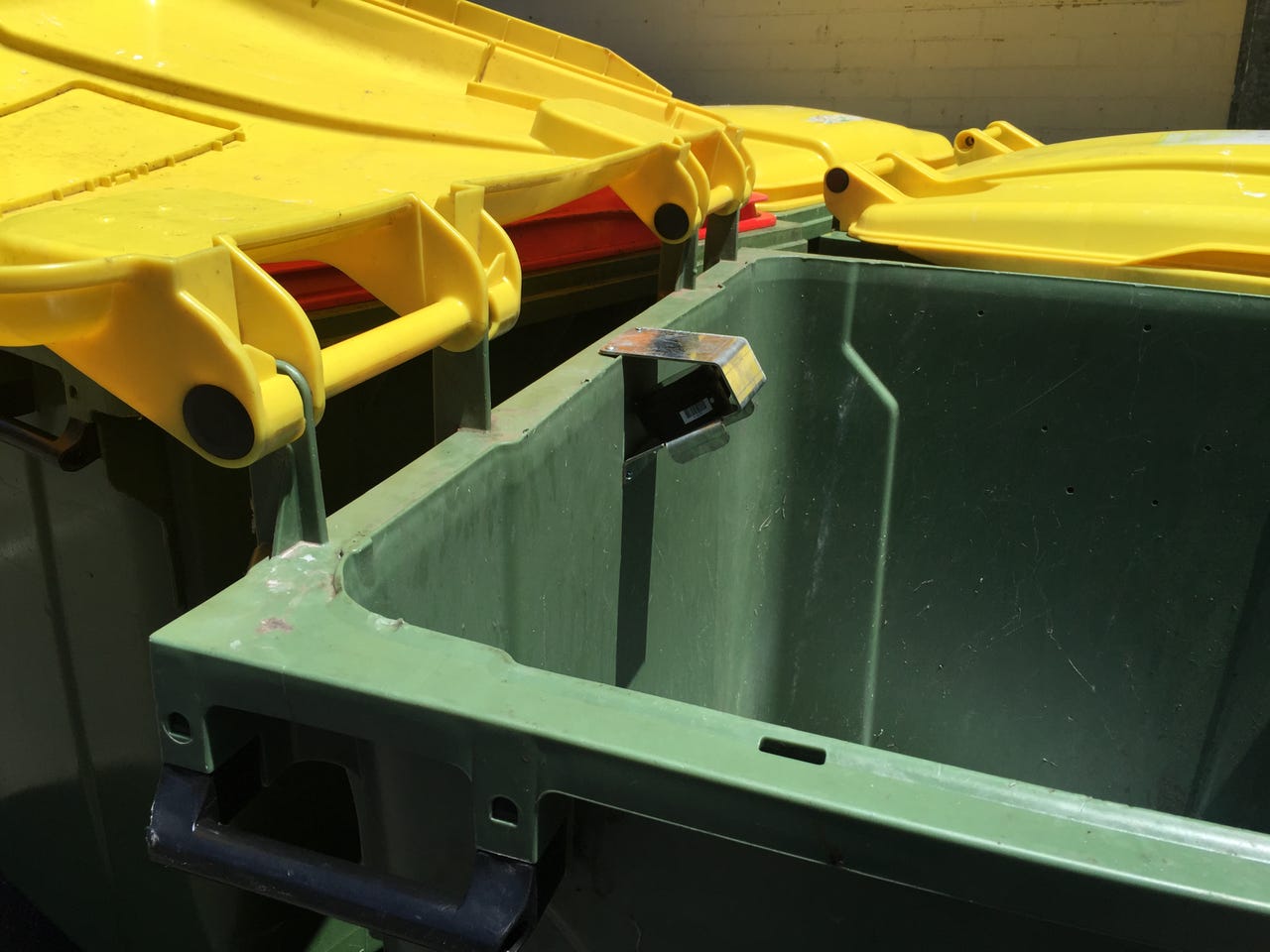Making litter bins smart would be a smart idea

Corio Waste Management, based in Moolap Victoria, has contracts with three Victorian councils -- Surf Coast Shire, Casey City (the state's largest by population), and Glen Eira -- to service council-owned litter bins in parks, recreation areas, and high street shopping strips. That's a total of about 2,700 bins spread over an area of 2,000 square km, almost 1,600 square km in the Surf Coast Council area alone.

The company's chief operating officer Peter Wilkes has implemented technology from Ireland-based Smartbin, represented in Australia by Newcastle-based company Fernlawn. These devices use ultrasonic signals to sense the amount of rubbish in the bin and relay this information as data over the Telstra mobile network.
Corio took over the Surf Coast contract only in November 2015 after the previous contractor failed to keep the bins from overflowing. Wilkes said the company is presently contracted to run collection trucks two shifts per day during peak season, one shift per day four days per week in shoulder, and one shift three days per week in off-peak -- a contract requirement put in place by the council following the previous contractor's poor performance.
"The problem with Surf Coast Council is the tyranny of distance," Wilkes said. "Nowhere is close. We have to travel 40 minutes to get to Winchelsea and there are bins spread over a 10km distance. The guys have to travel 10 to 15km out of their way to service a couple of bins. It's only from their experience that we know when bins will be full. Then you get community events that the council might not have made us aware of, and all of a sudden bins are overflowing."
Latest Australian news
Overflowing bins create more than just an eyesore for the public -- they hit Corio's bottom line because there are financial penalties in its contract if bins are left to overflow. So bin monitoring technology clearly has great potential for an efficiency boost.
Wilkes said that the councils were at first reluctant to embrace the idea. "The councils were happy for us to pay for it, but they did not understand the long-term benefit. However, Surf Coast was willing to give it a go. So my aim is to trial it in Surf Coast, get the facts and figures, and take it to the other councils. I think it will be a no brainer. It reduces fuel consumption; it reduces the guys' time. There are lower maintenance costs, and lower overheads."
A reduction in the number of bin emptyings is also likely to make the locals happier. Wilkes said he gets complaints from café owners and the public. "We can't go into a shopping centre before 7am and by 8am people are out having their lattes and the last thing they want out the front of the café is a smelly truck tipping bins. They ring me up but I tell them to take it up with the council."
Corio has also been trialling the Smartbin ultrasonic sensors in large, 30-cubic-metre compacting bins in shopping centres. Wilkes explains that these are already equipped with a monitoring system, but it is not always reliable. The system senses the pressure being applied to the compacting arm, uses that as a proxy for the fill level, and sends an SMS. However, temporary blockages can trigger a signal, resulting in the bins being emptied sooner than necessary.
Wilkes also sees application for the Smartbin technology in more transient environments. "We do a lot of events like the Falls Festival [an annual music festival in Lorne, Victoria]," he said. "We supply them all with a mobile compactor, and they ring up to get it emptied, but those people are not familiar with the system, and they call at inappropriate times: at night, or when the tip isn't open. Sensors would alleviate that problem."
Large events create another problem for Corio. "Councils tell us there is going to be an event and they want their bins emptied before, during, and after. We don't get paid any extra to do that; it is all part of the contract. So it would be good if we could look and see what needs emptying."
Fernlawn founder David Puxty said the sensing devices run from a lithium C cell battery that will keep them operating for about five years signalling once per day. They can be remotely instructed to increase their signalling frequency, or to report at different fill levels.
The sensors are complemented by cloud-based software that provides the client with a map showing bins that need emptying, as well as route optimisation software that shows drivers the best route to take. This can then be downloaded to drivers' iPads.
"There is a lot of route optimisation software out there, but it will take you to bins that are empty. The big step change in efficiency is to do the route optimisation only to bins that need emptying," Puxty said.
The iPad app also enables drivers to report when they empty a bin and this information can be relayed back to the operations centre and displayed on a map.
Puxty said this could be particularly useful in detecting illegal use of public waste bins by small businesses that use them to avoid paying for commercial waste disposal. "They wait until the bin is empty then they go out and fill it with their own rubbish and call the council to say it needs emptying."
Corio is not yet using the iPad app, Puxty said -- it is still trialling the technology and determining how many bins it will equip with sensors.
Fernlawn is now monitoring several hundred bins for more than a dozen clients, including about 100 bins at the University of Newcastle through facilities management company Broadspectrum; and at the Australian National University through waste management company Suez. "Broadspectrum is also using our technology to identify bins that are underutilised so they can reallocate them to busier areas," Puxty said.